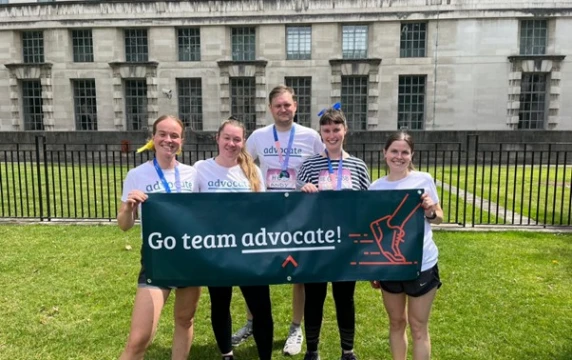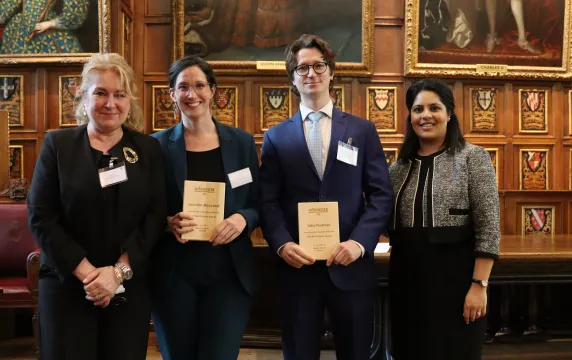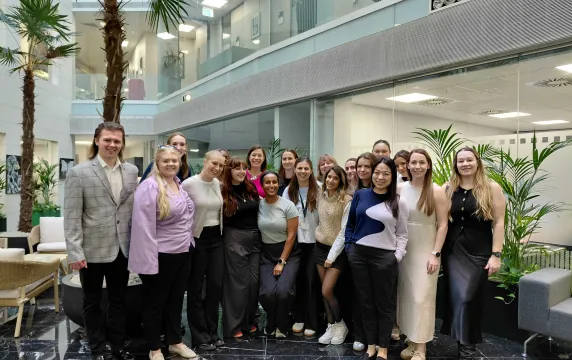Below, our Western Circuit Caseworker Louis offers his reflections on Pro Bono Week 2025 having been involved in a number of pro bono events and initiatives on Circuit. In particular, he draws attention to the enthusiasm for pro bono that was highlighted during the week, as well as the opportunities for collaboration and networking that working with Advocate on pro bono cases provides.

I started as Advocate’s Western Circuit caseworker in July, after finishing the Bar Course with the Inns of Court College of Advocacy (ICCA). Although I was aware of pro bono work and Pro Bono Week, this was the first year I have fully participated.
I spoke at three in person events: a seminar at Field Court Chambers in London, a panel discussion on how to get involved in Pro Bono organised by the University of Southampton Global Law Clinic, and a further panel discussion at the Western Circuit Women’s Forum in Bristol. The events posed a great opportunity to introduce myself, the work that we do at Advocate, and the opportunities that are available to professionals on Circuit.
Two themes emerged from the discussions I was a part of. The first is the enthusiasm that exists for pro bono work in all areas of the legal profession. At the launch event at the start of the week, the Attorney General Lord Hermer KC described pro bono work as ‘the lifeblood of the justice system’. Candidly, some expressed the view that this ought not to be the case and the justice system relies too heavily on professionals working for free. However, there was a general recognition of how vital pro bono work is towards achieving the ideal that justice is accessible to all. Since starting my role at Advocate, I have witnessed first-hand the demand for pro bono work in the southwest. At the Western Circuit Women’s Conference on Friday, it was a great pleasure to meet the District Judge who regularly refers people to us.
The second theme that emerged was the opportunity that pro bono work through Advocate provides to make connections across the legal profession. Through our Collaborate mentoring scheme, Advocate connects junior barristers with senior practitioners to assist them in providing pro bono advice, drafting or representation. Equally, Collaborate works horizontally, giving professionals the space to expand their expertise into new areas. Likewise, the Pro Bono Connect scheme, run in collaboration with LawWorks, enables barristers to make connections with solicitors through work on pro bono cases. These schemes are excellent opportunities for professional development. Ultimately though, the beneficiaries of this networking are the people we support who would otherwise face difficult, sometimes tortuously complex, legal proceedings alone.
I really enjoyed meeting so many great professionals and students this week. I see a really eclectic mix of cases across the southwest, in all areas of law and in a wide range of courts and tribunals - many of which are still looking for legal help. I am hopeful that, after the promising discussions this week, more barristers and legal professionals will look to get involved.
- Louis Helsby, Western Circuit Caseworker
-
Latest news

Marking two years of Birmingham CLIPS
2 Feb 2026















